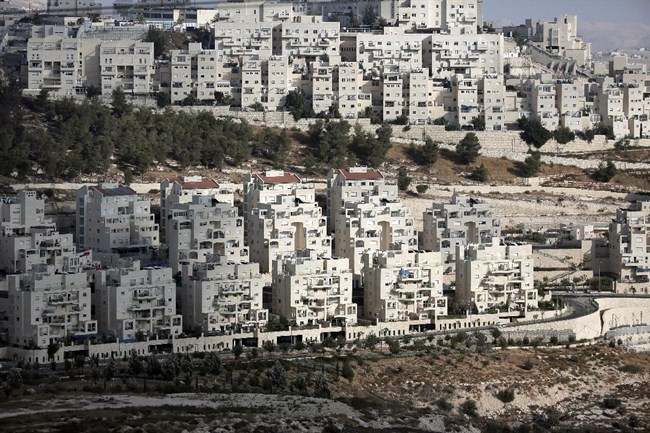Settlement watchdog Peace Now released a report on Sunday, revealing a 34 percent increase in illegal Israeli settlement construction over 2016, with Israeli settlers breaking ground on 1,814 new housing units, compared to 1,350 new construction starts in 2015.
“Construction was largely focused in isolated settlements and in areas that are highly problematic in terms of a two-state solution,” the NGO said, highlighting that nearly 70 percent (1,263 housing units) of the new housing were in areas that lie beyond the proposed 1967 “Green Line” border in the occupied West Bank.
While all settlement construction is considered illegal under international law, at least 10 percent (183 housing units) of the construction starts took place in sites considered illegal according to Israeli law, the group said, referring to illegal settlement outposts.
“While in recent years, most of the construction in outposts was done by individuals who initiated the construction of their own houses, in 2016 we saw more organized construction projects in outposts, with massive infrastructure works which requires funding and investment,” Peace Now said, highlighting that “such investment must require the active, or at least passive, involvement of the authorities, and the settlement municipal councils in particular.”
In total, illegal outposts saw 114 construction starts, 62 of which were for permanent structures and 52 for mobile homes, according to the NGO.
While the Israeli government typically maintains that the Israeli settlers erecting the outposts act independently from government policy, the outposts tend to be strategic in their location in the West Bank and often times serve as corridors between existing official settlements in order to create facts on the ground and more easily expand the settlements in the future.
The controversial Regularization law that passed through Israeli parliament in February could grant official Israeli governmental recognition to more than a dozen illegal settlement outposts in the West Bank established on private Palestinian lands, provided that they can prove they were built “in good faith” — without knowledge that the land upon which it was built was privately owned by Palestinians.
Peace Now noted that of all illegal settlements, the Efrat settlement in the southern occupied West Bank Bethlehem district saw the greatest amount of construction starts in 2016, totaling 221 new housing units.
“The settlement of Efrat is considered highly problematic in regards to a two-state solution since it is adjacent to Bethlehem from the south, preventing the city from any future possibilities of development,” Peace Now said, adding that Efrat is located east of Route 60, the only highway that connects the southern West Bank with the northern part of the territory.
“The annexation of Efrat to Israel would thus bloc this highway and will cut the southern parts of the West Bank from its northern parts.”
Peace Now’s findings for 2016 coincided with a record number of Palestinian home demolitions by Israeli authorities in 2016, according to a December report from the the United Nations Office for the Coordination of Humanitarian Affairs (OCHA).
The UN agency’s documentation encompassed the occupied West Bank as well as East Jerusalem, where Israeli authorities demolished or seized 1,089 Palestinian-owned structures since the beginning of 2016 until Dec. 28.
The “vast majority” of the Palestinian structures were destroyed or seized for lacking Israeli-issued building permits, according to the report. Israel rarely grants Palestinians permits to build in the occupied Palestinian territory, including East Jerusalem, forcing most Palestinians to build illegally. However, an estimated 500,000 to 600,000 Israeli settlers reside in 196 illegal Israeli settlements and are more easily given building permits and allowed to expand their homes and properties.
Human rights groups and international leaders have strongly condemned Israel’s settlement construction, claiming it is a strategic maneuver to prevent the establishment of a contiguous, independent Palestinian state as envisioned in the two-state solution by changing the facts on the ground.
Israeli human rights group B’Tselem has argued that under the guise of a “temporary military occupation,” Israel has been “using the land as its own: robbing land, exploiting the area’s natural resources for its own benefit and establishing permanent settlements,” estimating that Israel had dispossessed Palestinians from some 200,000 hectares (494,211 acres) of lands in the occupied Palestinian territory over the years.
[Source: Maan news]





 WhatsApp us
WhatsApp us 

